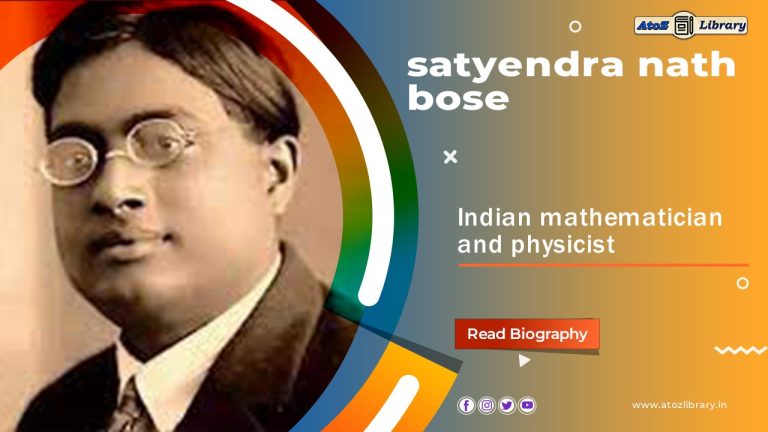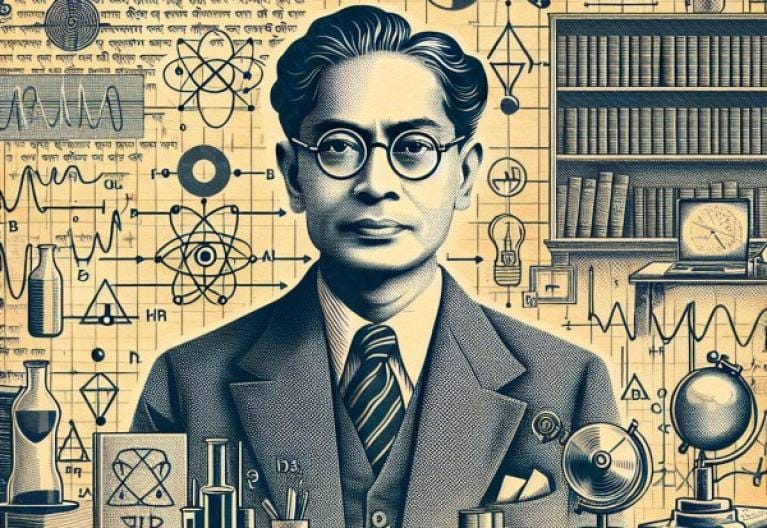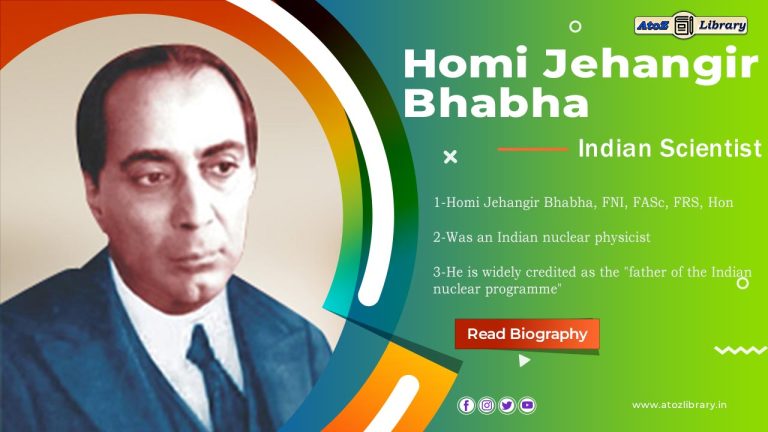Introduction
Bhagat Singh was a prominent socialist and revolutionary socialist considered to be one of the most influential revolutionaries of the Indian independence movement. Born on September 28, 1907, in Banga, Punjab, He was just a teenager when he became politically active and involved in the fight against British rule in India. He was deeply influenced by Marxist and anarchist ideologies, and he became a charismatic figure for the young people of India who were looking for ways to challenge the colonial power.
He was arrested for his role in the bombing of the Central Legislative Assembly in Delhi in 1929 and was hanged for the crime on March 23, 1931, at the age of 23. His death was widely mourned in India and he became a symbol of the Indian independence movement, inspiring generations of young people to fight for freedom and social justice.
Throughout his life, Bhagat Singh was known for his unwavering commitment to his beliefs, his fearlessness in the face of adversity, and his deep understanding of the need for political and social change. Today, he is remembered as one of India’s greatest national heroes and continues to inspire people around the world with his message of justice and equality.
Early Life And Education
Bhagat Singh was born on September 28, 1907, in Banga, Punjab, India, into a Punjabi Sikh family that was politically active and had a history of involvement in the independence movement. His father and uncle were both prominent independence activists, and he was exposed to revolutionary ideas from a young age.
He received primary education in his village and later in Lahore, where he studied at the National College. He was a bright student and showed a keen interest in history and politics, especially the ideas of socialism and anarchism. He was influenced by the works of European revolutionaries such as Vladimir Lenin, Leon Trotsky, and Mikhail Bakunin.
His political awakening took place during the Non-Cooperation Movement of 1920-22 and the subsequent crackdown by the British authorities. He became involved in revolutionary organizations and was arrested several times for his political activities. Despite this, he continued to work towards independence and was eventually hanged by the British in 1931 at the age of 23.
He remains an inspiration for millions of people in India and around the world who are committed to the ideals of freedom and equality. He is remembered for his unwavering commitment to the cause of independence and social justice, and for his bravery in the face of adversity.
Family Life Of “Bhagat Singh”
Bhagat Singh was born into a Punjabi Sikh family that was politically active and had a history of involvement in the Indian independence movement. His father, Kishan Singh, and uncle, Ajit Singh, were both prominent independence activists and were members of the Ghadar Party, a group dedicated to ending British rule in India.
There is not much information available about His’s personal life or family beyond his role as a revolutionary socialist. He never married and had no children. However, his political activities and his role in the Indian independence movement have made him a beloved figure in Indian history, and he remains an inspiration for millions of people in India and around the world who are committed to the ideals of freedom and equality.
Related post:- Biography Of Dr. BR Ambedkar-Babasaheb Ambedkar Life Story
Career
Bhagat Singh was a socialist and revolutionary socialist who was actively involved in the Indian independence movement. His political career began in his teenage years, when he became involved in various independence organizations and began participating in anti-colonial activities.
In 1928, Bhagat Singh and a group of fellow revolutionaries carried out a bombing in the Central Legislative Assembly in Delhi, in protest against the British passing of the Public Safety Bill and Trade Disputes Act, which they believed were unjust. The bombing resulted in the injury of several British officials but no fatalities. Bhagat Singh and his companions were arrested and charged with murder and treason.
Bhagat Singh was held in jail for more than two years and used his time there to write several articles and pamphlets advocating for independence and social justice. His writings became widely popular and helped to galvanize public opinion in favor of the independence movement.
Despite facing numerous obstacles and arrests, Bhagat Singh remained committed to his political beliefs until his death. He was hanged by the British on March 23, 1931, at the age of 23, in a widely publicized execution that helped to further galvanize public opinion against British rule.
His career as a revolutionary socialist was short but influential. He remains one of the most famous and revered figures in Indian history, remembered for his unwavering commitment to the cause of independence and social justice and for his bravery in the face of adversity.
Works Of “Bhagat Singh”
Bhagat Singh was a prolific writer and political thinker, and his writings had a significant impact on the Indian independence movement. Some of his most notable works include:
- “Why I am an Atheist” – In this essay, Bhagat Singh wrote about his rejection of religion and his commitment to scientific reasoning and humanism.
- “The Problem of Unemployment” – This essay highlights Bhagat Singh’s views on the role of the state in addressing economic issues and promoting social justice.
- “The Scientific Outlook” – Bhagat Singh wrote this essay to explain his views on the importance of science and rational thinking in society.
- “Jail Notebook and Other Writings” – This collection of writings includes Bhagat Singh’s personal diary, letters, and essays that he wrote while in jail. These works provide insight into his political beliefs and his views on independence and social justice.
His writings have been widely translated and continue to be read and studied by people around the world who are interested in his life and his political philosophy. They are considered an important part of the cultural and political heritage of India and have inspired generations of young people who are committed to the ideals of freedom and equality.
Related post:- Mahatma Gandhi Biography: Untold story Of gandhiji
Revolutionary activities of Bhagat Singh
Bhagat Singh was involved in several revolutionary activities during India’s struggle for independence. Some of his notable activities include:
Kakori Conspiracy: Bhagat Singh and his fellow revolutionaries were involved in the Kakori Conspiracy in 1925. They planned and executed the robbery of a train carrying government funds.
Assembly Bombing: In 1929, Bhagat Singh and his comrades threw two bombs in the Central Legislative Assembly in Delhi to protest against the repressive measures of the British government.
Hunger Strike: Bhagat Singh went on a hunger strike along with other prisoners in jail to protest against the inhumane treatment of political prisoners by the British government.
Lahore Conspiracy: In 1929, Bhagat Singh and other revolutionaries formed the Hindustan Socialist Republican Association (HSRA) and planned to overthrow the British government through an armed revolution. They carried out a series of bombings and assassinations as part of the Lahore Conspiracy.
His revolutionary activities inspired a generation of young Indians to join the freedom struggle and fight for India’s independence. His fearless attitude and commitment to the cause of freedom continue to inspire people even today.
Ideals and opinions of Bhagat Singh
Bhagat Singh was a revolutionary socialist who believed in the principles of equality, justice, and freedom for all. He had a strong sense of patriotism and believed in the complete independence of India from British rule. Some of his key ideals and opinions are as follows:
Socialism: Bhagat Singh was a firm believer in socialism and believed that the means of production and distribution should be owned and controlled by the workers. He saw capitalism as a system that exploited the working class and created social and economic inequalities.
Secularism: Bhagat Singh believed in the principle of secularism and opposed any form of communalism or religious discrimination. He saw communalism as a tool used by the British to divide and rule India and believed that it was important to unite people of all religions to fight for India’s independence.
Patriotism: Bhagat Singh had a strong sense of patriotism and believed that India’s independence was essential for the country’s progress and development. He was willing to make any sacrifice for the cause of freedom and saw himself as a servant of the people.
Non-violence vs. violence: Bhagat Singh believed in the use of violence as a means of achieving political goals, but he also believed that non-violent methods could be effective in certain situations. He saw violence as a necessary evil in the fight against British colonialism but believed that non-violent methods should be used whenever possible.
Overall, Bhagat Singh’s ideals and opinions were shaped by his commitment to the cause of freedom and his belief in the principles of socialism, secularism, and patriotism. His ideas continue to inspire people in India and around the world to fight for a more just and equitable society.
Legacy and memorials of Bhagat Singh
Bhagat Singh’s legacy as a revolutionary and freedom fighter has inspired generations of Indians to fight for social justice, equality, and independence. He is remembered as a martyr who sacrificed his life for the cause of India’s freedom. Some of the ways in which Bhagat Singh is remembered and commemorated include:
Memorials and Monuments: There are several memorials and monuments dedicated to Bhagat Singh across India, including the Shaheed-e-Azam Bhagat Singh Museum in Punjab, the Bhagat Singh Memorial in Delhi, and the Martyrs’ Memorial in Hussainiwala, Punjab.
Movies and Literature: Several movies, books, and songs have been written about Bhagat Singh and his life, including the famous movie “The Legend of Bhagat Singh” and the book “The Jail Notebook and Other Writings.”
Political and Social Movements: His ideas and ideals have inspired many political and social movements in India, including the Naxalite movement and the Maoist movement.
Inspiring Young Minds: Bhagat Singh’s life and legacy continue to inspire young Indians to fight for social justice and independence. His message of unity, sacrifice, and patriotism remains relevant even today.
Overall, His legacy as a revolutionary and freedom fighter continues to inspire people in India and around the world to fight for a more just and equitable society. His ideas and ideals are a reminder that the struggle for freedom and justice is ongoing, and that we must continue to fight for a better future for all.
Related post:- Jawaharlal Nehru Biography: Life story Of Jawaharlal Nehru
conclusion
In conclusion, Bhagat Singh was a legendary figure in Indian history who remains an inspiration for millions of people around the world. He was a socialist and revolutionary socialist who was deeply committed to the cause of independence and social justice. His political activism and bravery in the face of adversity have made him one of the most revered figures in Indian history.
Bhagat Singh was a prolific writer and political thinker, and his writings continue to be widely read and studied by people around the world who are interested in his life and his political philosophy. He remains a symbol of courage, determination, and unwavering commitment to the ideals of freedom and equality.
Despite his early death, Bhagat Singh’s legacy continues to inspire new generations of people who are committed to creating a better world. He remains an important part of the cultural and political heritage of India and is remembered as one of the greatest heroes of the Indian independence movement.






continuously i used to reaad smaller articles or reviews that also clear their motive, and that is also happening with this piece of
writing which I am reading at this time.
continuously i used to read smaller articles or reviews
that also clear thei motive, and thatt is also
happening with this piece of writing which I am
reading at this time.